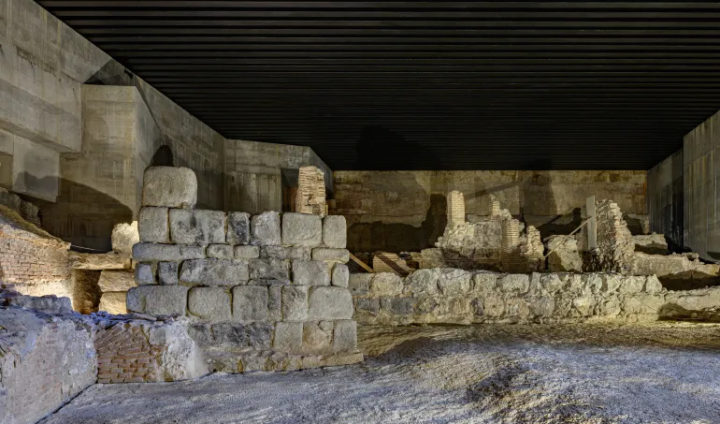The opening of a new museum in Madrid marks an important step in recognising the city’s Islamic heritage. The Galeria de Colecciones Reales will showcase a significant artefact: a section of Madrid’s original Umayyad fortified wall. Although the existence of this medieval wall has been known for some time, the promotion of the exhibit reflects a shift in attitude towards embracing Madrid’s Muslim past. Based on the latest archaeological evidence, the museum supports the widely accepted narrative that Emir Muhammad I of Córdoba founded Madrid in the ninth century.
Archaeologist and curator Álvaro Soler emphasises that Madrid is the only European capital with Islamic origins, a fact that has been historically overlooked due to political and religious tensions. The construction of the museum on the site of the original fortified wall near Madrid’s Royal Palace has unearthed various archaeological remains, including three towers and a gate. Additionally, numerous artefacts from the time when Madrid was known as Maŷrīṭ have been discovered.
However, there have been misconceptions regarding the city’s history. An eighth-century skeleton, popularly referred to as “Valentín,” found at the site in 2009, sparked debate about Madrid’s origins. Chief archaeologist Esther Andréu clarified that the skeleton likely belonged to a wandering Visigoth shepherd, not evidence of a settlement. While some sensationalist headlines speculated on the implications, Soler emphasises that a single skeleton does not prove the presence of a Visigothic population.
Efforts are being made to raise awareness of Madrid’s Islamic past. Daniel Gil, a professor of Arabic and Islamic studies, collaborates with organisations like The Islamic Culture Foundation (FUNCI) to promote the city’s heritage. Gil highlights that while Madrid’s Islamic past has at times been treasured, it has also been abandoned depending on the political climate. Parks and archaeological findings often lack appropriate recognition or public access. Gil strives to counter the uneasiness surrounding Madrid’s Islamic origins and shed light on the city’s rich history.







